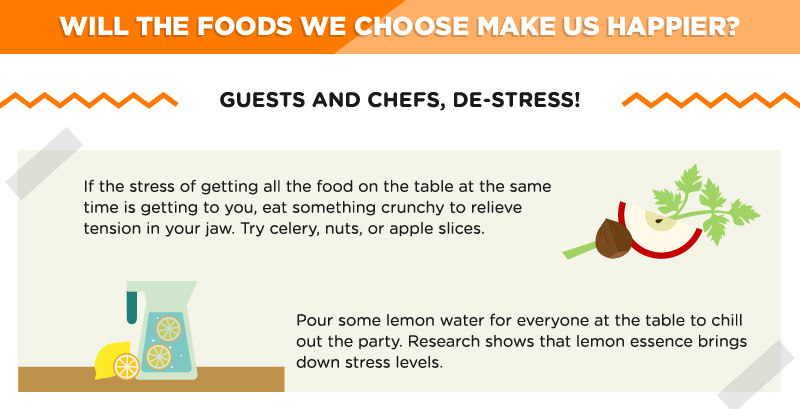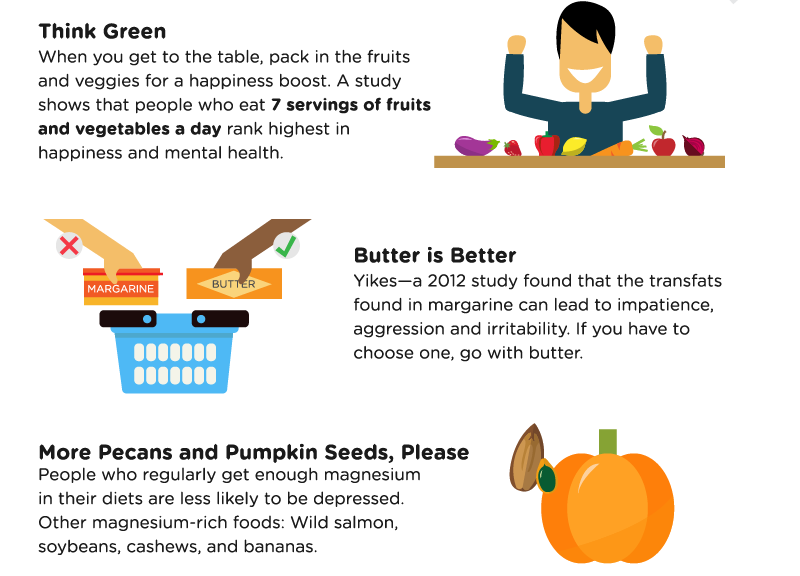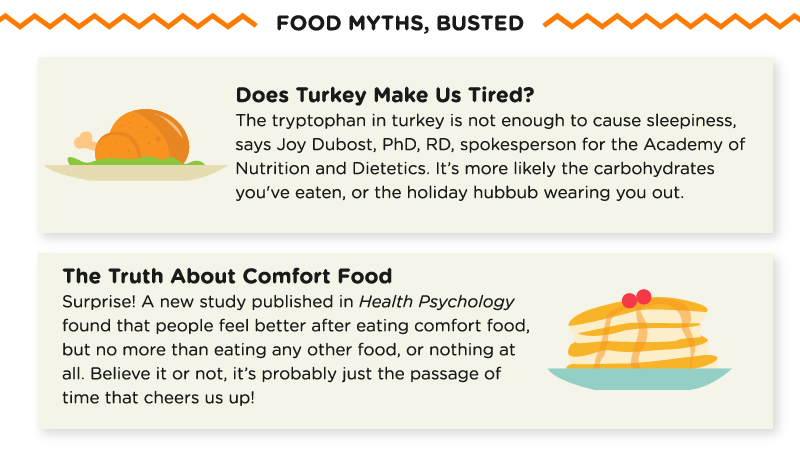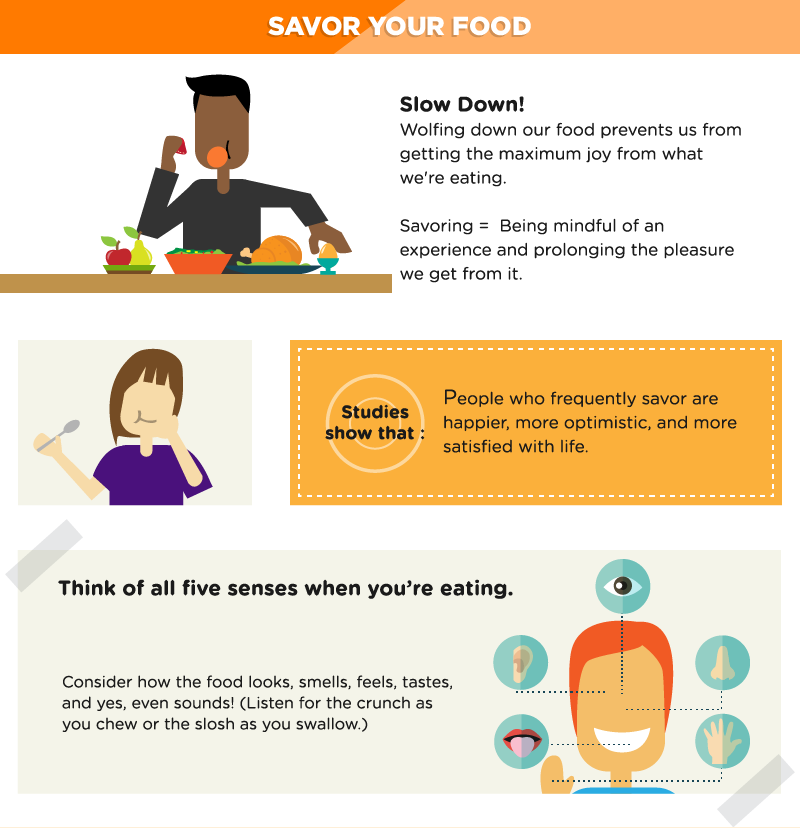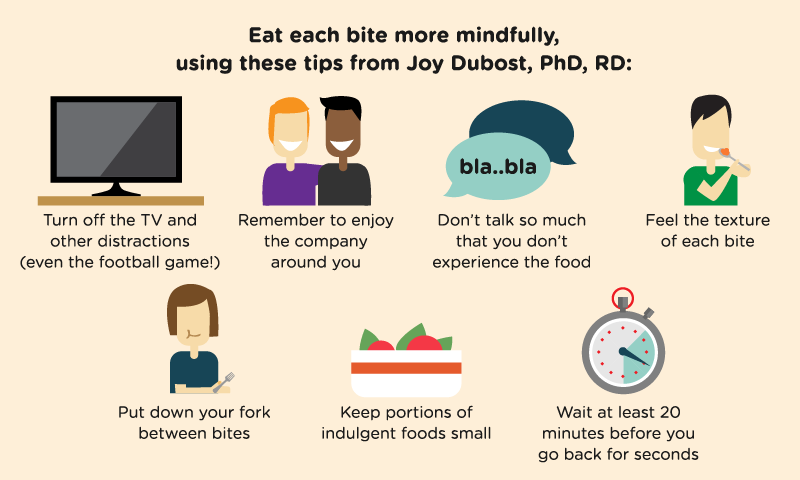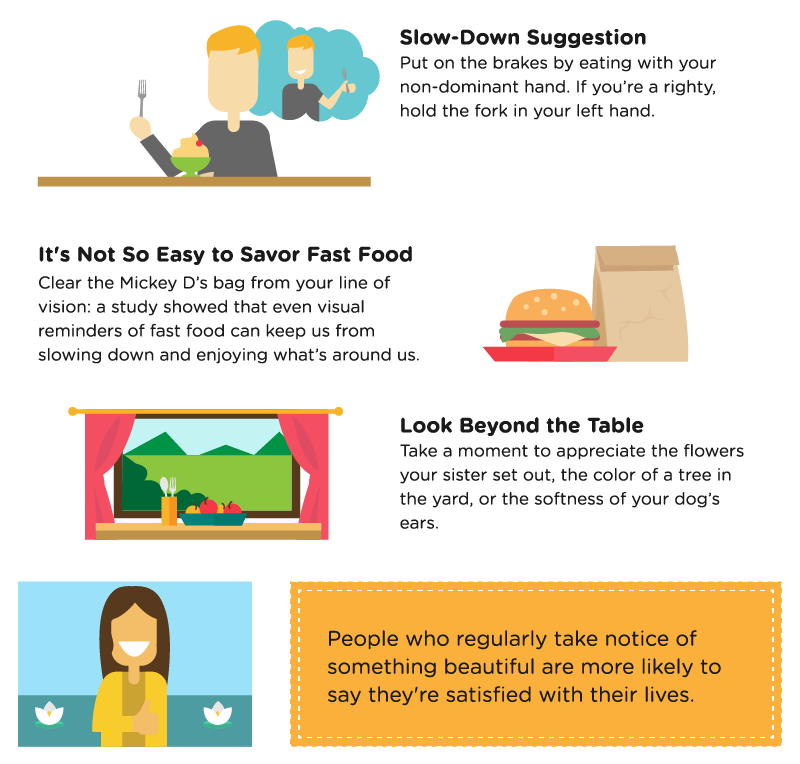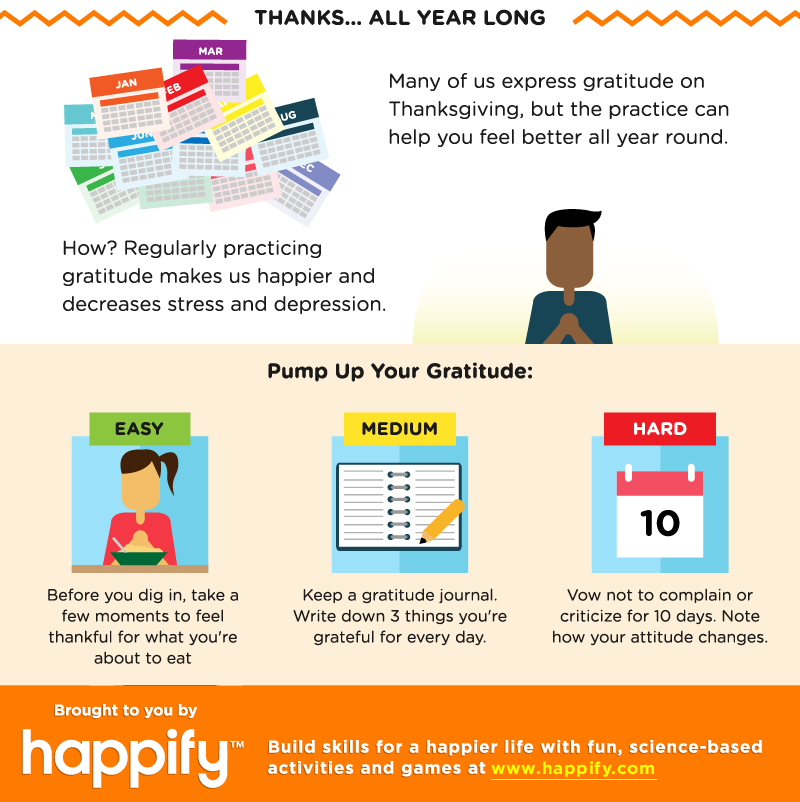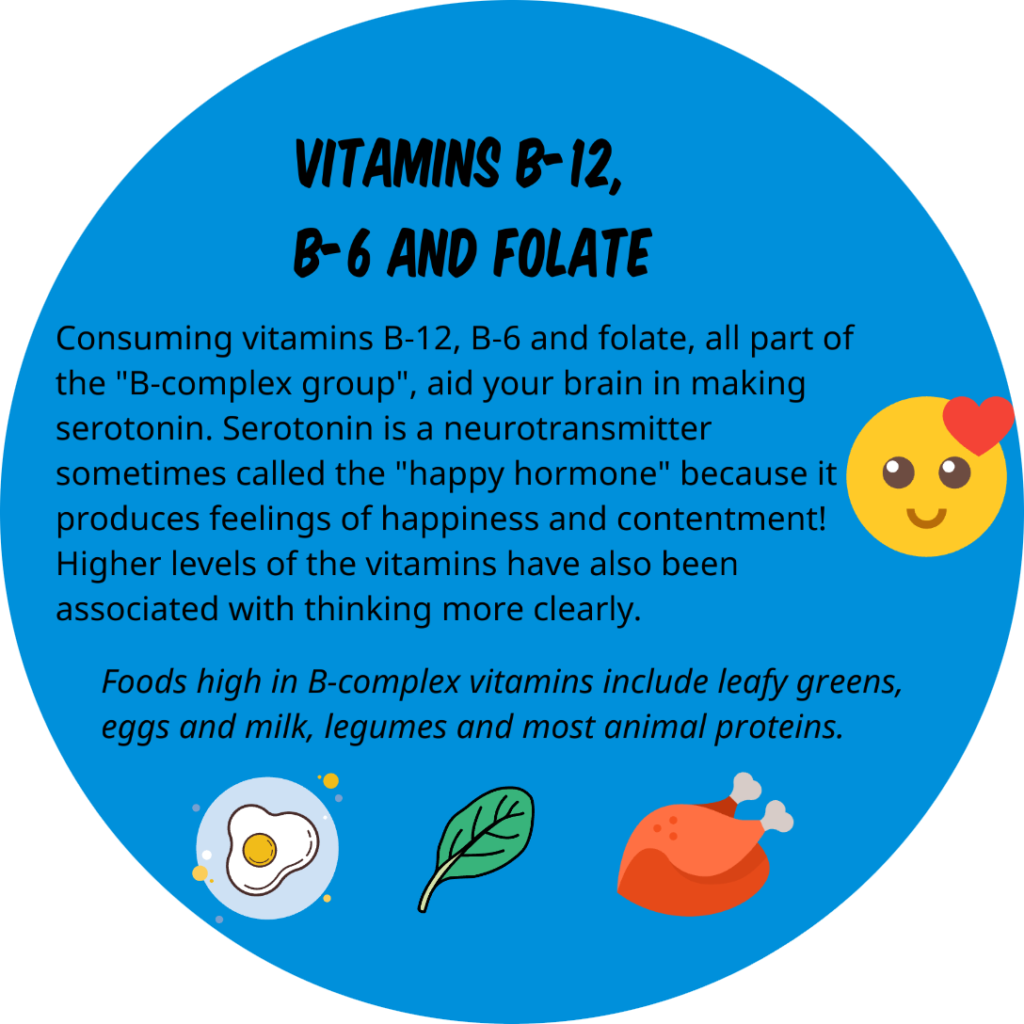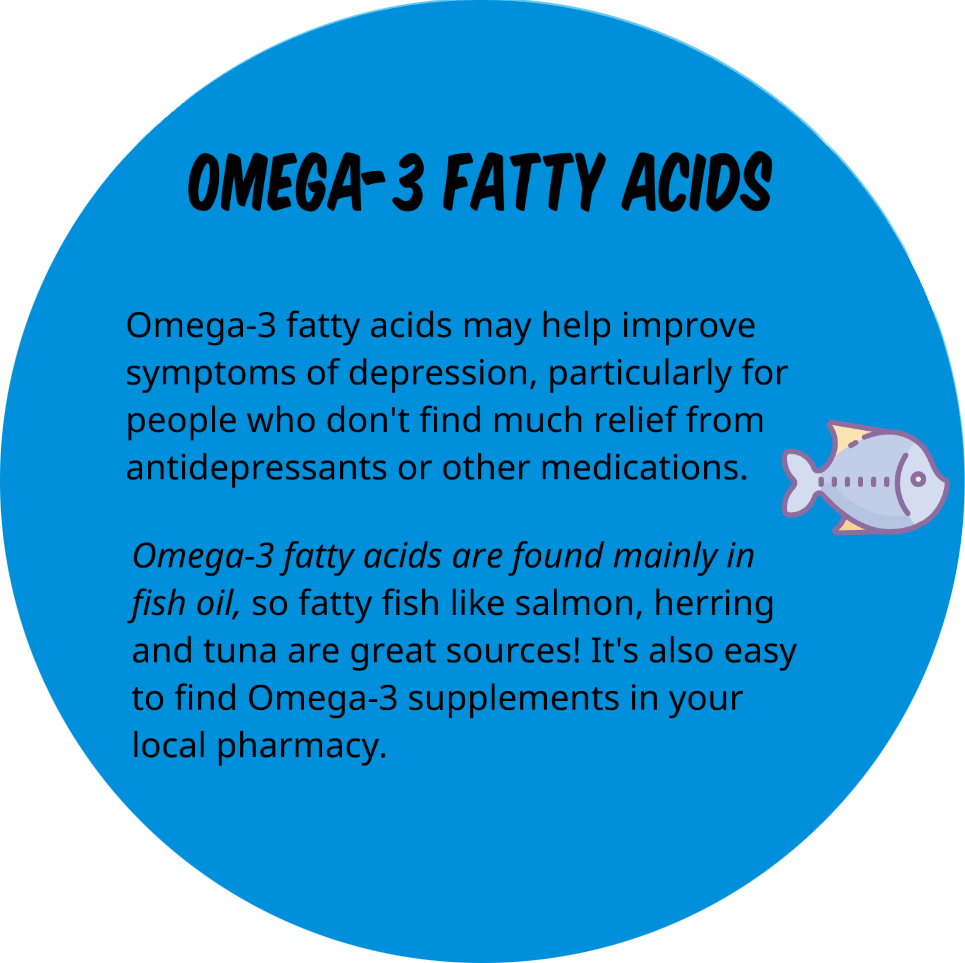Nutrition and Brain Health in Depth

Introduction
We know how important a good diet is for your body’s health, but what about diet’s effect on your mental health? Mental health affects your emotions, thinking and behavior. While the words mental health may give you the impression of illness, it actually refers to your social, emotional and psychological well-being. Just like your body can be healthy or unhealthy at times, so can your mind. When your body is sick or just feeling run-down, you may do things to take care of your body like take medicine, or take a nap. The same can be said for your mental health. Two common negative emotions we all experience at times are anxiety and sadness. But what exactly are these emotions?
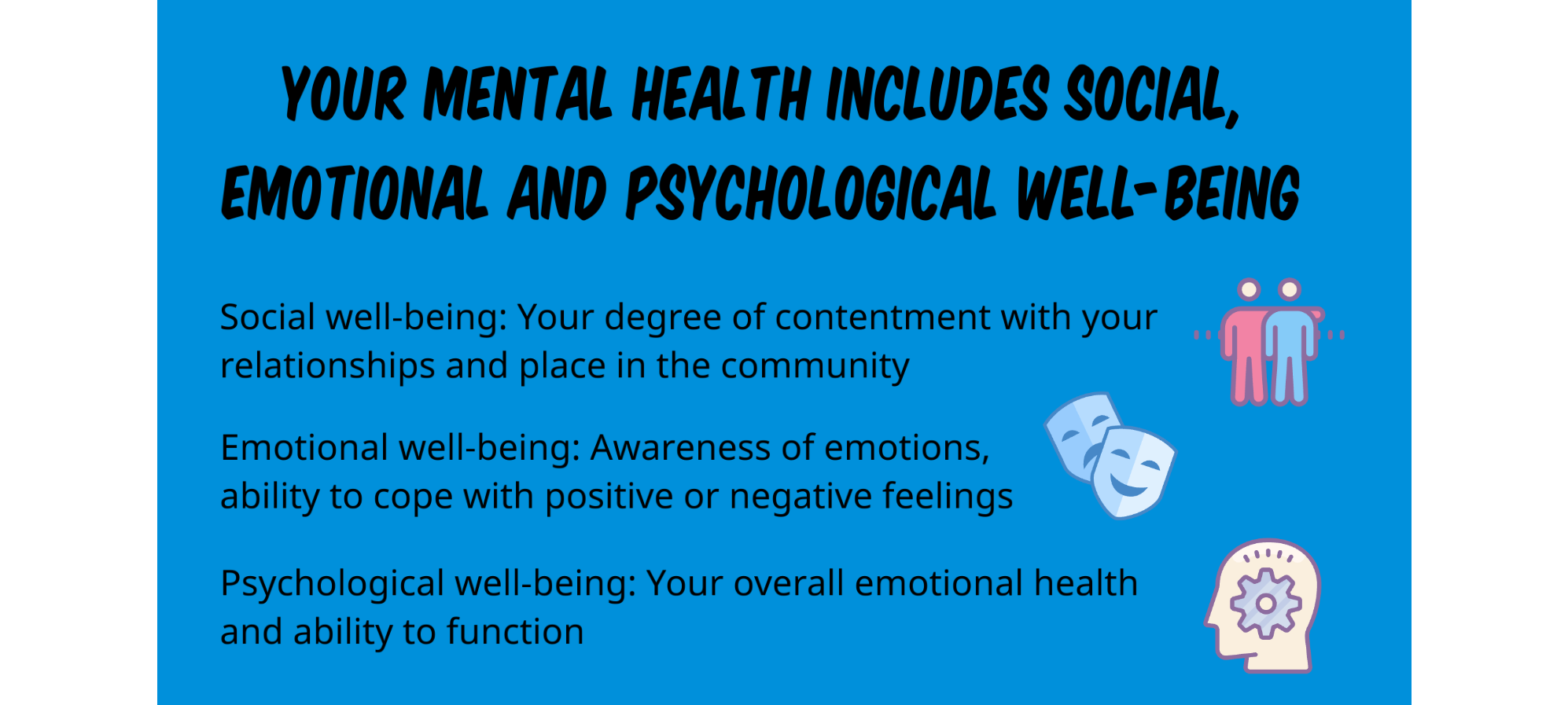
Have you ever experienced a rush of energy before you have to get up and talk in front of a group of people? This is called anxiety and it is a normal emotion that anyone can experience. Anxiety can cause other physical symptoms like stomach aches, headaches, sweating and rapid heartbeat. While these effects usually do not last long, they can be very uncomfortable in the moment. But, anxiety has a purpose too! Our brains evolved this emotion to tell us that we may be going into a situation that is dangerous. If you were walking alone at night in an area that was not safe, you may feel anxious. In that situation, it would be smart to be extra cautious. Many times the thing we are anxious about won’t actually harm us, like speaking in front of a class.
Feeling sad sometimes is also a normal part of life. Like anxiety, this is a normal reaction to things that may happen in our lives; maybe you have lost someone that was close to you, whether they passed away, or moved away. Maybe you didn’t get the grade you hoped for, or you got in a fight with a friend. These are all situations where being sad is not only normal but it can be therapeutic to experience the sad emotions rather than ignore them. Sometimes a person is sad for a long time and does not know why. That is when you may need the support of a doctor or counselor to find the root of the problem.
Just like a fever is your body’s way of telling you “pay attention to me, I have a cold!”, emotions like anxiety and sadness are our brain’s way of telling us there is something going on in our mind that needs to be addressed. Maybe you are over-stressed about a school project and feel anxious with a stomach ache. You could do something calming to feel better, just like you take medicine to help your cold.
Improve Mental Function Through Good Nutrition
One way to take care of both our bodies and minds is through good nutrition. Nutrients can affect your physical performance, but they can also affect your mood and brain performance…and there is a growing body of research that supports this idea! Many factors that affect mental health are still being understood by doctors and professionals. A serious mental health issue will not be “cured” by taking vitamins or eating a certain food. What we do know is that one important factor affecting mental health, mood and brain function is nutrition.
In the 1960s, the school breakfast program started to provide meals to children who were not able to eat at home before school. Evidence shows just how important having regular meals is for students to perform well in school. You may understand this from your own experience…if you have not eaten for awhile, maybe you cannot think as clearly, and become irritable or tired until you get a chance to eat a meal. In a similar way, your diet can impact your mental health or mood as well. This can play out in the short term (such as getting “hangry” after missing lunch) or over the long term where a poor everyday diet is linked to sadness and anxiety. Research has shown that a daily diet full of highly refined carbs and few fruits and vegetables can make issues such as depression, anxiety and ADHD worse. On the other hand, getting enough nutrients, particularly Vitamins D, B-complex and Omega-3 fatty acids could actually help improve mental health. How does what you eat everyday have such an effect on mental health? To answer that, let’s first break down how some individual nutrients affect your brain and your mood.
Sugar, Vitamins and Omega-3 Fatty Acids
Sugar
Eating too much sugar, especially refined white sugar, found in most snack foods, can make symptoms of anxiety and depression worse, and negatively impacts your brain performance. Refined grains spike blood sugar, triggering your body’s responses to lower the blood sugar. This natural response to an increase in blood sugar can cause tiredness and symptoms of depression. Eating too many refined carbs will also cause inflammation, which plays a role in poor brain health (as well as poor overall health). Whole grains are different because your body digests them at a slower rate, therefore your blood sugar does not spike the same way. While some nutrients like vitamins can improve mood, too much of specific nutrients can have a negative effect.
Vitamins
We are still learning exactly how anxiety and depression works, but we do know that vitamins help maintain body functions that enable your brain to make serotonin. Serotonin is a hormone that makes us feel good, calm, and happy. Some vitamins, from the B-complex group such as B-12, B-6 and folate, help in serotonin production which affects your mood and brain function. Higher levels of B-complex vitamins have also been shown to help you think clearer. Vitamin D is also linked to mood and having a deficiency is linked to depression. Having enough of these vitamins can help maintain good mental health and brain function.
Omega-3 Fatty Acids
Omega-3 fatty acids are another nutrient that can boost your mood. There is growing evidence that incorporating extra Omega-3 in your diet could help symptoms of ADHD, anxiety and depression. Omega-3 is found in flaxseed, soybean oil and fish, (especially fish with a lot of oil such as salmon or sardines).
Gut Health
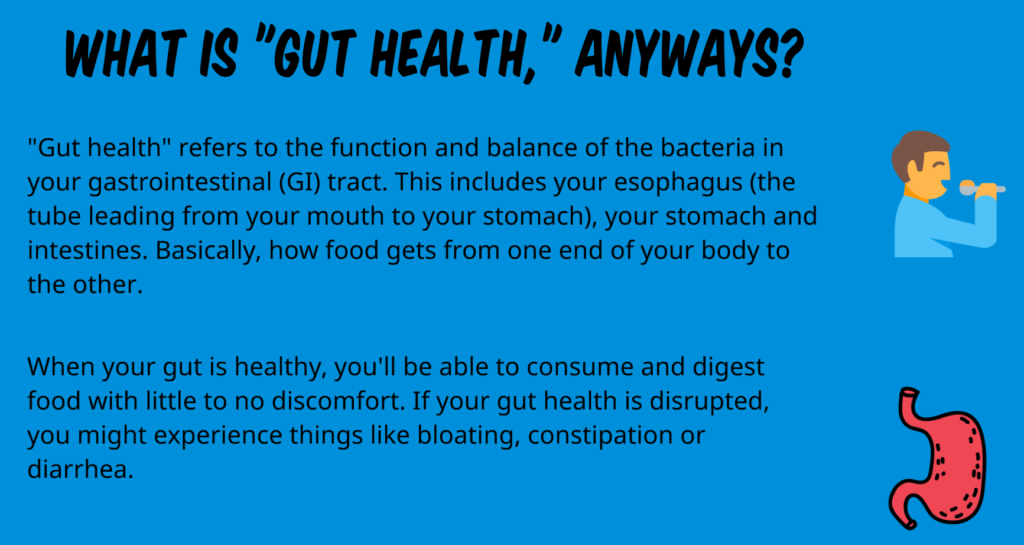
Your gut also plays a role in mental health. Scientists are still discovering ways that our gut and brain are connected, but we do know that they are connected! Sometimes the gut is even referred to as our “second brain” because of the many neurotransmitters in the gut. In addition, the microbiome in your gut can communicate with your brain and other systems in your body. Have you ever gotten so upset by something that you felt sick to your stomach? That is an example of this communication between gut and brain. Gut health is particularly connected to anxiety and there’s even been evidence that conditions like IBS can contribute to anxiety. In addition, the serotonin that was mentioned earlier, the brain chemical responsible for making you feel calm and happy….80% of that is made inside your gut! Taking care of your gut health by eating a nutrient-rich diet is also taking care of your whole body, brain and all!
Inflammation
Why do these have an effect on mental health? Not only does your gut play a role, but it also has to do with antioxidants, free radicals and inflammation.
Inflammation can come from various sources, such as stress, toxins in the environment or eating a poor diet over time. Our body has a way to lessen inflammation but when it becomes excessive, we start to see negative effects. One of inflammation’s negative effects is that it contributes to poor mental health. Antioxidants can help keep inflammation from building up in your body. Antioxidants are found in vitamins (whether from food or from supplements) and help our bodies stay healthy. They work to keep free-radicals from building up. Free-radicals are created through the process of oxidation, which happens within cells from normal wear and tear, stress or pollution. This build up of free radicals causes inflammation, which can lead to a number of diseases.
Inflammation is also connected to mental health issues because it affects how chemicals are released in the brain. Therefore, reducing inflammation can not only help improve physical function, but it can also improve mental function. Some studies have even shown that antioxidants can help enhance other treatments for some mental illnesses.
Adolescents and Support for Healthy Eating
Adolescence is a time of rapid growth and development, both in the body and brain. Therefore it is also a time when treating your body well is very important..and that includes eating healthy! For example, getting enough nutrition that supports healthy bone growth (such as calcium and Vitamin D) will help an individual reach their maximum height.
Unfortunately, many of the foods available and marketed to adolescents are not the most healthy options. When you get hungry at school, what food options does your school have? Highschool cafeterias often have energy-dense foods such as french fries, pizza and hamburgers that will fill you up but not provide a lot of nutrients. For snacks outside of lunch, some schools may only have vending machines with snack chips and soda, which also have little to no nutrition. Eating healthy food full of nutrients helps with brain function and makes you feel good after eating rather than sluggish.
This time of life is often very busy, where students study hard, are involved in activities in and outside of school, and may not have time or the means to prepare healthy food for themselves. For example, if you are just coming out of basketball practice and have not eaten in several hours, you will probably be really hungry. What would be the easiest thing to grab and eat that fills you up? Would that necessarily be the most healthy choice? Making sure that your after-practice food is healthy may require planning and preparing meals and snacks in advance so they are ready to go. Additionally, some adolescents have not had the chance to learn to cook, so learning how to make a couple of healthy meals would benefit you and your family! Schools and parents offering easy food options that are also nutritious would provide extra support and encouragement to adolescents to eat healthy. If you want to create good eating habits, the easier choice must also be the healthy choice.
Healthy snacks can be easy ones to prepare, while providing you with all the nutrients that will keep you full and focused for your next activity. Make sure the snack has a mixture of macro and micronutrients. Fiber and fat will make you feel full and keep you satiated, while protein and complex carbs will give you energy that lasts.
For example, apples and peanut butter provide vitamins and fiber from the apples, and protein and fat from the peanut butter. Carrots and hummus provide a similar combination. Some other examples that provide all three macronutrients are a peanut butter and jelly sandwich, or a turkey sandwich with lettuce or tomato…just make sure they are on whole grain bread! The refined grains will act like sugar and make you sluggish. Slowing down and paying attention to how you feel after you eat will help build those healthy eating habits.
Conclusion
Although we are still learning about exactly how diet affects mental health, we do know that vitamins and other nutrients, as well as gut health all play an important role. Furthermore, sadness and anxiety can affect your brain performance, making it harder to think clearly and do well on schoolwork. Being anxious or depressed for example, takes a lot of mental energy and attention, leaving less for other things like participating in school or engaging with friends. By eating well, you are also taking care of yourself which also lifts your mood and improves mental health. Don’t worry, you probably will not fail your next math test because you ate that bag of chips at lunch. It is the food you eat regularly (almost every day), that has the most influence on your health. That means, you can have the occasional dessert or french fries and not worry about damaging your brain or your body. Think of diet as part of the bigger picture of taking care of your whole self: eating well, exercising, reducing stress and being a part of a team or community all improve your mood and your motivation, encouraging you to continue making healthy choices. Taking small steps and making one healthy choice at a time can lead to some great health benefits!
Resources
- Centers for Disease Control and Prevention, (2018). Learn about mental health. Retrieved from www.CDC.gov
- .Ganji et al, (2010). Serum vitamin D concentrations are related to depression in young adult US population: the Third National Health and Nutrition Examination Survey. International Archives of Medicine, 3(29). Doi: https://doi.org/10.1186/1755-7682-3-29
- Goldfield, G., Moore, C., Henderson, K., et al, (2010). Body dissatisfaction, dietary restraint, depression and weight status in adolescents. Journal of School Health, 80(4): 186-192. doi: https://doi.org/10.1111/j.1746-1561.2009.00485.x
- Harvard Health Publishing, (2020, July 6, originally published 2011, March). Understanding the stress response. Retrieved from https://www.health.harvard.edu.
- Higuera, V., Reviewed by Legg, T.J., PhD, (2017). A nutritional guide to managing your MDD. Healthline. Retrieved from https://www.healthline.com
- Infographic: What to eat for optimal mental health, (2019). Retrieved from https://www.happify.com
- Jacka FN, Kremer PJ, Berk M, de Silva-Sanigorski AM, Moodie M, Leslie ER, et al., (2011). A Prospective Study of Diet Quality and Mental Health in Adolescents. PLoS ONE, 6(9): e24805. doi: https://doi.org/10.1371/journal.pone.0024805
- Kessler, D. A. (2013). Your Food is Fooling You: How your brain is hijacked by sugar, fat and salt. New York, NY: Roaring Brook Press.
- Lim, S.Y., Kim, E.J., Kim, A., Lee, H.J., Choi, H.J., Yang, S.J., (2016). Nutritional Factors Affecting Mental Health. Clinical Nutrition Research, 5(3):143-152. doi: https://doi.org/10.7762/cnr.2016.5.3.143
- Mittal, R., Debs, L. H., Patel, A. P., Nguyen, D., Patel, K., O’Connor, G., Liu, X. Z. (2017). Neurotransmitters: The Critical Modulators Regulating Gut-Brain Axis. Journal of cellular physiology, 232(9): 2359–2372. doi:10.1002/jcp.25518
- O’Neil, A., Quirk, S., Housden,S., Brennan, S.L., Williams, L.J., Pasco, J., Berk, M., Jacka, F.N., (2014). Relationship Between Diet and Mental Health in Children and Adolescents: A Systematic Review. American Journal of Public Health, 104(10): 31-42. doi: https://doi.org/10.2105/AJPH.2014.302110
- Schultz, R., Reviewed by Legg, T.J., PhD, (2018). These women treated their anxiety and depression with food. Here’s what they ate. Healthline. Retrieved from https://www.healthline.com
- SciShow Psych. (2019, November 4). Why Diet Might Be a Big Deal for Mental Health.
- SciShow Psych. (2017, June 14). Your Microbiome and Your Brain.
- Shim, R., Baltrus, P., Ye, J., Rust, G., (2010). Prevalence, treatment, and control of depressive symptoms in the United States: results from the national health and nutrition examination survey (NHANES), 2005-2008. Journal of the American Board of Family Medicine, 24(1): 33-38. doi: 10.3122/jabfm.2011.01.100121
- United States Department of Agriculture (USDA). School Breakfast Program. Retrieved from https://www.ers.usda.gov/topics/food-nutrition-assistance/child-nutrition-programs/school-breakfast-program.aspx
